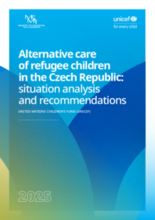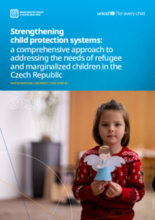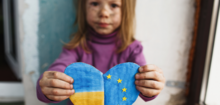Displaying 1 - 10 of 35
The multiple and extensive transformations that have occurred in Eastern Europe since the 1990s did not bypass care, bringing diverse care regimes. This chapter, in the Research Handbook on Social Care Policy, aims to explore the main trends in the development of care policies in Croatia (a post-Yugoslav country) and the Czech Republic (a Visegrád country).
This article presents a comparative analysis of the Czech Republic and Colombia’s implementation of the United Nations Guidelines for Alternative Family Care. Based on secondary data, it identifies a shared adherence to the UN framework; a strong Czech system for alternative caregivers’ selection, training and support; a deep ethical commitment of Colombian foster families to ensure children’s well-being, despite limited resources; and the relevance of supporting parents at risk of having their children removed from their care and integrating the effects of unplanned migration into alternative care strategies.
This article reports that the Czech Republic has passed a law, signed in July 2025 and coming into effect on 1 January 2026, explicitly prohibiting all corporal punishment of children in every setting — home, school, day care, alternative care and
The Ministry of Education, Youth and Sports (MoEYS) and the UNICEF Refugee Response Office in the Czech Republic commissioned this report to assess the situation of refugee children in alternative care. While examining the broader system and identifying how this system can be improved, the analysis pays particular attention to the needs of refugee children from Ukraine following the significant increase in refugee arrivals since 2022.
This assessment examined how the child protection system supports children and families in vulnerable situations, with a particular focus on supporting the significant number of refugee children from Ukraine who have come to the Czech Republic since the start of the war in Ukraine in February 2022.
This article investigates the image of an ideal foster grandparent as constructed by social workers, drawing upon 24 in-depth interviews with practitioners from foster care agencies in the Czech Republic.
Panama, Uganda, Sri Lanka and Czech Republic among those newly committing to totally prohibit violence against under-18s.
Eurochild has carried out an urgent mapping, with support from its members, UNICEF country teams and government representatives across 13 countries. The mapping examines the laws and policies at national level for children in alternative care and unaccompanied and separated children from Ukraine who arrive in the following countries: Czechia, Estonia, Germany, Greece, Hungary, Italy, Latvia, Lithuania, Poland, Romania, Slovakia, Spain and the United Kingdom.
The Task Force on Foster Care of the Transforming Children's Care Global Collaborative Platform held the second spotlight webinar series on identifying foster carers on 5 May 2022.
The aim of this conference is to share news, good practice etc. in the field of training and accompanying kinship caregivers.




